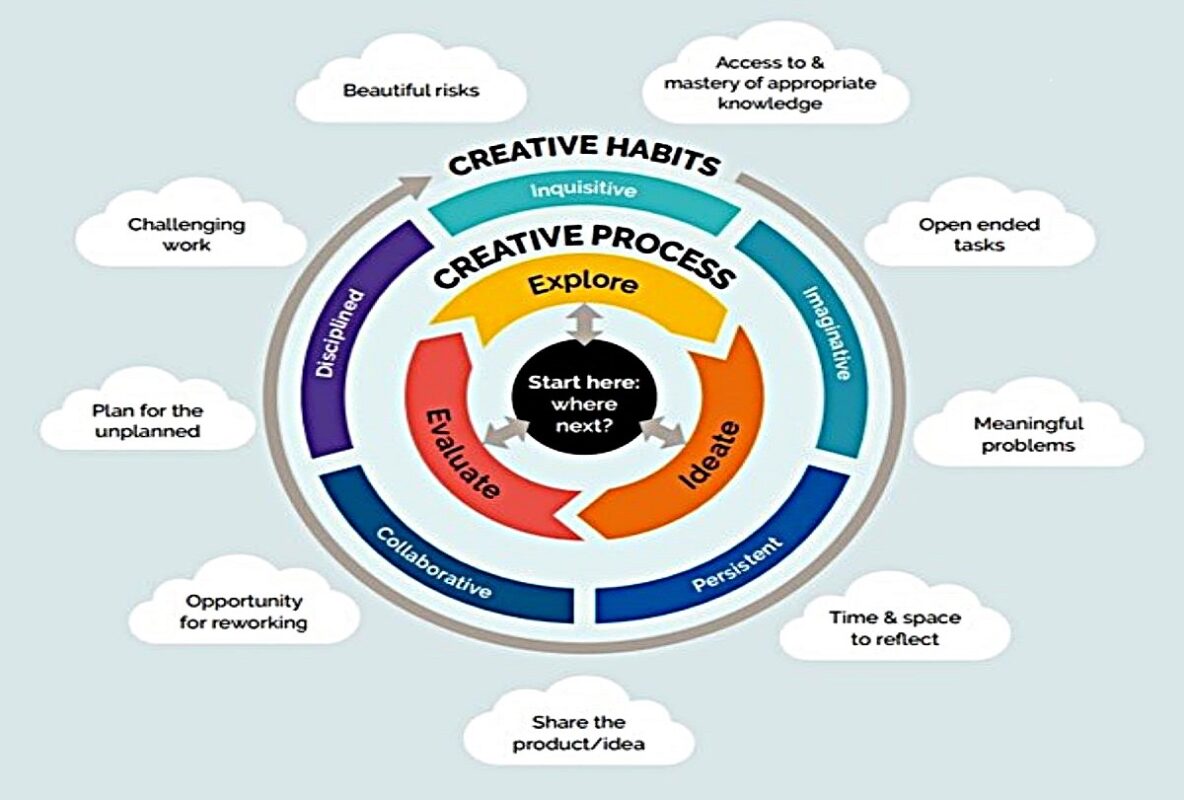The Government launches the first Industrial Strategy in seven years

- The Business Secretary and Chancellor announce steps to deliver long-term growth through a modern Industrial Strategy, including appointing a Chair of the new Industrial Strategy Advisory Council
- The Industrial Strategy will create a pro-business environment and play to the UK’s strengths, focusing on eight growth driving sectors including creative industries and financial services
- Business Secretary Jonathan Reynolds pledges an end to instability “our modern Industrial Strategy will hardwire stability for investors and give industry the confidence to plan for the next 10 years and beyond”
- Clare Barclay, CEO of Microsoft UK, will chair government’s new Industrial Strategy Advisory Council, which will provide expert advice developed in partnership with business, unions, and stakeholders from across the UK
- Announcements come ahead of International Investment Summit which will bring together business leaders from around the globe to boost investment and growth
- Government is also asking for business to help shape the industrial strategy with a green paper to develop the plans in partnership
The next generation of British industry has been fired-up and readied to reignite our industrial heartlands and kickstart economic growth, as the Government launches the first Industrial Strategy in seven years.
Business and Trade Secretary Jonathan Reynolds and the Chancellor of the Exchequer Rachel Reeves have published a green paper to kickstart delivery of the Government’s modern Industrial Strategy. The strategy will drive long-term growth in key sectors that is sustainable, resilient and distributed across the country.
Announcing the eight growth sectors will be the focus of the Strategy, alongside naming the new Industrial Strategy Advisory Council’s chair, the Business Secretary has promised to ‘give investors a ten year plan to choose Britain’.
The key sectors the government will focus its modern Industrial Strategy are on advanced manufacturing; clean energy industries, creative industries; defence; digital and technologies; financial services; life sciences; and professional and business services.
The green paper, which will be published on the day of the International Investment Summit, will bring together UK leaders, high-profile investors and businesses from across the world. There, Reynolds is expected to tell delegates the Industrial Strategy will put Britain back on the global stage and help attract investment into the most productive parts of the UK economy.
Business and Trade Secretary Jonathan Reynolds MP said:
“Our modern Industrial Strategy will hardwire stability for investors and give them the confidence to plan not just for the next year, but for the next 10 years and beyond.
“This is the next step in our pro worker, pro business plan which will see investors and workers alike get the security and stability they need to succeed.
“Clare’s wealth of talent and experience will help ensure the Industrial Strategy delivers its mission of unleashing the potential of high productivity sectors to spur growth, spread wealth, and drive-up employment across the UK.”
Chancellor of the Exchequer Rachel Reeves MP said:
“I have never been more optimistic about our country’s potential. We have some of the brightest minds and greatest businesses in the world. From the creative industries and life sciences to advanced manufacturing and financial services.
“This Government is determined to deliver on Britain’s potential so we can rebuild Britain and make every part of the country better off.”
Clare Barclay, CEO of Microsoft UK, will chair the Industrial Strategy Advisory Council. The Council will inform the development of the Industrial Strategy through its expertise and latest evidence, working with business, trade unions, devolved governments, local leaders, academia and stakeholders.
In the King’s speech the Government committed to putting the Council on a statutory footing – giving it powers and responsibilities and ensuring it will be permanent and independent.
Ahead of establishing a statutory body, we are introducing an interim advisory Council. The first Council meeting and announcement of full membership is expected in the coming weeks.
Microsoft UK CEO Clare Barclay said:
“As Chair of the Industrial Strategy Advisory Council, I will ensure the Council provides a clear and strong voice on behalf of business, nations, regions, and trade unions, as we invest for the future to ensure that our prosperity is underpinned by robust growth in key sectors right across the country.
Whilst we fully embrace the industries of today, we must also have a clear plan for future growth, and the Advisory Council will play a central role in shaping and delivering this plan.”
The government has also identified eight growth-driving sectors for the Industrial Strategy, focusing on sectors the UK excels in today and will excel tomorrow.
Over the last 25 years, the top 30% of sectors ranked by productivity in 1997 were responsible for generating roughly 60% of the economy’s entire productivity growth. That’s why our Industrial Strategy will channel support to sectors and geographical clusters that have the highest growth potential for the next decade.
Our strategy will create a pro-business environment to capture a greater share of internationally mobile investment in strategic sectors and motivate domestic business to boost their investment and scale up their growth.
Businesses up and down the country will also be invited to respond to the Industrial Strategy Green Paper,
The consultation will provide stakeholders with the opportunity to inform the Strategy’s continued development and ensure it delivers tangible impact to people and communities right across the UK.
Views are sought from business, international investors, unions and any other interested parties, on the overall vision, approach to growth sectors and the policy levers needed to drive investment.
Make UK CEO Stephen Phipson said:
“We live in a world which is massively different to a decade ago and simply leaving the economy and, industrial strategy, to the free market is an ideology which is long past its sell by date. This is a welcome first step in addressing the achilles heel of the economy which has left the UK an outlier among advanced countries. It sets out a clarity of vision for how the resources of Government and, in particular, each department can be convened towards a single objective of long term growth across all regions.
“With the welcome announcement of the Industrial Strategy Advisory Council Chair and, the Council being put on a statutory footing, industry will no longer fear the constant chop and change in policy we have seen over the last decade or so and can focus on the long term – it is important that the Government is delivering on its promises.”
WPP CEO Mark Read said:
“WPP supports the Government’s objective to create and foster an investment environment that drives long-term growth. As a global marketing services company, we believe that the UK’s world-leading creative industries, powered by new technologies like AI and exceptional talent, can continue to play a key role in further advancing the UK’s investment case on the global stage.”WPP supports the Government’s objective to create and foster an investment environment that drives long-term growth. As a global marketing services company, we believe that the UK’s world-leading creative industries, powered by new technologies like AI and exceptional talent, can continue to play a key role in further advancing the UK’s investment case on the global stage.”
Airbus UK Chairman John Harrison said:
“Airbus welcomes the inclusion of advanced manufacturing in the Government’s Industrial Strategy as a vital opportunity to build on the successful partnership between government and the aerospace sector.
“As one of the most technologically advanced businesses in the UK, we also welcome the strong focus on innovation, which is crucial to driving future growth and maintaining the UK’s global competitiveness in aerospace and defence.”
New Supply Chains Taskforce
For businesses to invest and thrive they need confidence in their supply chains. So, we are also establishing a new supply chains taskforce in government that will work to assess where supply chains critical to the UK’s economic security and resilience – including those in the growth driving sectors outlined in the industrial strategy – could be vulnerable to disruption. The taskforce will ensure that government works with business to address these risks, building the conditions required to deliver secure growth.
We want the UK to be a prime investment opportunity for business. The Industrial Strategy, and the Industrial Strategy Advisory Council, will be key to giving investors the solid foundation on which to build.
Sector Reaction
Dr Joe Marshall, Chief Executive of the National Centre for Universities and Business (NCUB), said:
“The new Industrial Strategy is a positive step forward. It is particularly encouraging to see it backed by a statutory council that includes industry voices. This approach strengthens the alignment between the Government and business, paving the way for a more collaborative and robust economic future.”
“While the Strategy is promising, and puts an emphasis on the importance of people and skills in creating a pro-business environment across the UK, now is no time for complacency. Economic growth will depend on public investment that can effectively leverage private investment. With a challenging Budget ahead, it’s essential that this is recognised to ensure sustained progress. NCUB’s recent analysis highlights that public investment in research significantly boosts private investment. Indeed, for every £1 the Government spends on research and development (R&D), an additional £3.09 to £4.02 is invested by businesses in UK R&D. We are calling on the Government to be mindful of this and to use the Strategy to grow the UK’s status as a leading economic force, driving prosperity and opportunity, by creating an environment that promotes research, innovation, and collaboration.”
Marie-Laure Hicks, Head of Policy at the Aldersgate Group, said:
“The government has rightly recognised the importance of placing decarbonisation at the heart of industrial strategy and futureproofing UK growth. Businesses have been calling for an industrial strategy for long enough; this announcement means that focus can now shift towards delivery, which can provide the certainty and confidence needed to increase investment and growth in the UK. The stakes are high, with slow progress in this area meaning that the UK has fallen behind in the race to secure green investment, placing £224 billion of gross value-added (GVA) economic value at risk in heavy industry alone.
“The success of a future industrial strategy will depend on taking a whole-value chain and place-based approach to planned policy interventions while engaging extensively with business. By doing so the government can build on the UK’s existing strengths, maximising regional opportunities across the country, and building the robust supply chains, skills and demand signals we need.”
TUC General Secretary Paul Nowak said:
“For the past fourteen years, Conservative governments have caused chaos and confusion which has led to havoc for our economy and left us falling behind. As the US and European countries entered a race to build the industries of the future, the UK has been standing still.
“With this industrial strategy, the government has a chance to press the accelerator, with faster growth in key sectors to give Britain independent energy, clean industry, and world-leading technology.
“It is right that jobs will now be at the heart of the strategy – as the government set out, success will mean high-quality, well-paid employment across the country, backed by decent treatment for people at work.
“Unions look forward to working with government and businesses to develop detailed plans and deliver the strategy.”
Chief Executive of the Baker Dearing Educational Trust Simon Connell has released the following comment.
“This industrial strategy provides a clear plan for government, businesses, and educators on how to break down barriers to opportunity and drive economic growth.
“Baker Dearing especially welcomes the strategy’s honest assessment of the UK’s skills system, which is far from meeting the needs of employers and the economy.
“Too few young people are leaving school with even a basic understanding of how to secure employment and how to behave in the workplace. The deplorable decrease in entries to technical GCSE and A Level subjects since 2010 will also have prevented school students from progressing onto higher STEM learning and apprenticeships.
“The government must ensure this strategy is supported by the ongoing curriculum and assessment review. The findings of which ought to encourage schools to deliver a syllabus that is as rich in technical and employability skills as it is knowledge.
“From the network of 44 technical education secondary schools – University Technical Colleges – that we support, Baker Dearing knows how high-quality technical education can open opportunities for young people from any background.”











Responses